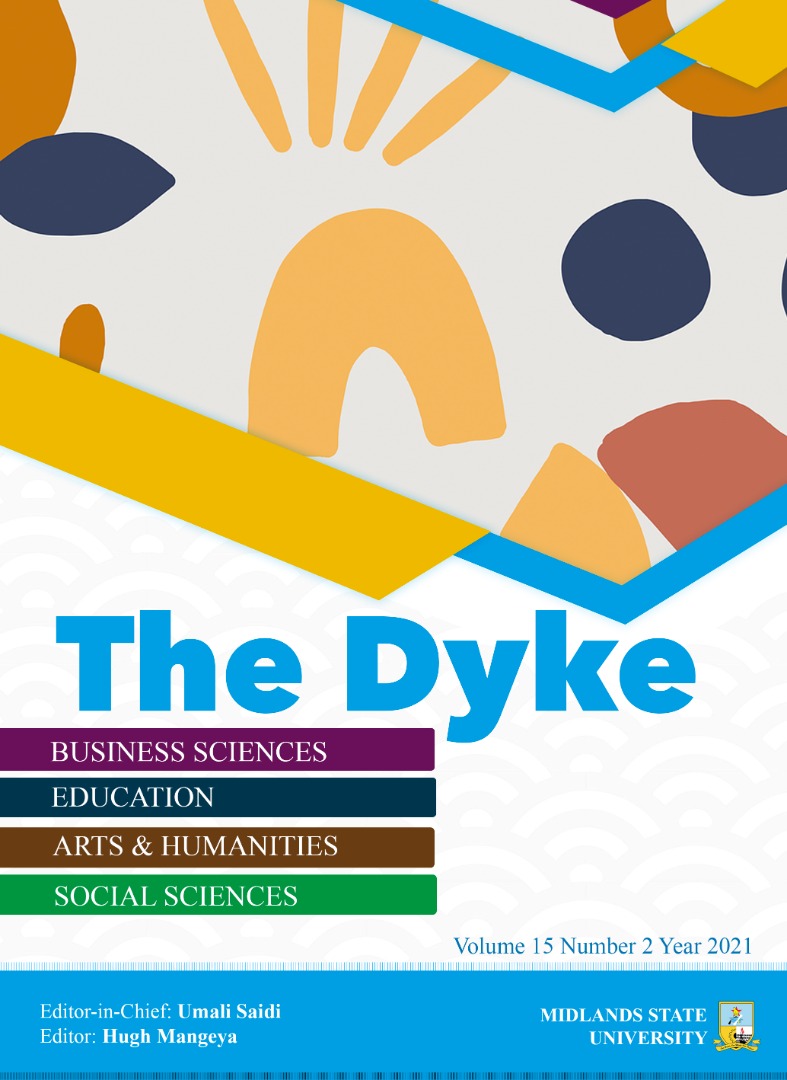Role and commercialisation of indigenous knowledge in the control of Covid-19 pandemic
DOI:
https://doi.org/10.64754/thedyke.v15i2.43Abstract
Coronavirus has been one of the most feared, and dangerous diseases, which killed thousands of people, if not millions, across the world. The disease caused many challenges such as low economic growth, deaths, closure of schools, and even worsened poverty and vulnerability across the globe. The disease is caused by a virus and has no cure yet. In an effort to mitigate health challenges indigenous knowledge systems have been reached out to as a panacea to control the pandemic; witnessing a paradigm shift from scientific to indigenous systems. It has been proven in many African countries like Cameroon, Madagascar, Zambia, and Zimbabwe to be one of the best ways to control coronavirus given the high recovery rates from those infected. Therefore, the paper's objective is to assess the role and commercialisation of indigenous knowledge in controlling the Covid-19 pandemic. A comprehensive search of the literature was undertaken to come up with a published paper on indigenous knowledge used to control Covid-19. Interviews and questionnaires were also used to collect data on indigenous knowledge by local people. The results show that Zumbani (Lippia Javanica) use became popular in countries like Zimbabwe, with almost everyone using it either in tea, drinks, porridge or steaming in an effort to control the disease. It is believed that Lippia Javanica contains high zinc content that fights against the virus, reduces viral replication, and boosts the human immune system. Other common trees include Sclerocarya birrea due to its high vitamin C content in fruit skin and Moringa (Moringa oliefera), an immune booster. Several people were using indigenous knowledge in fighting against Covid-19 with few in rural areas adopting the use of scientific methods. It can be concluded that the indigenous knowledge system was highly adopted by people in fighting against Covid-19.

Downloads
Published
How to Cite
Issue
Section
License
All articles in The Dyke are published under the Creative Commons Attribution 4.0 International License (CC BY 4.0).
Under this licence:
- Others may copy, redistribute, remix, transform, and build upon the work for any purpose, even commercially.
- Appropriate credit must be given to the original author(s) and source (The Dyke), along with a link to the license.
- Any changes made must be indicated.
Full licence details: https://creativecommons.org/licenses/by/4.0/
Archiving and Preservation
The Dyke supports long-term preservation of scholarly work through partnerships with digital repositories and indexing services, including Sabinet African Journals. Authors are also encouraged to deposit a copy of their published article in institutional or subject-specific repositories.




